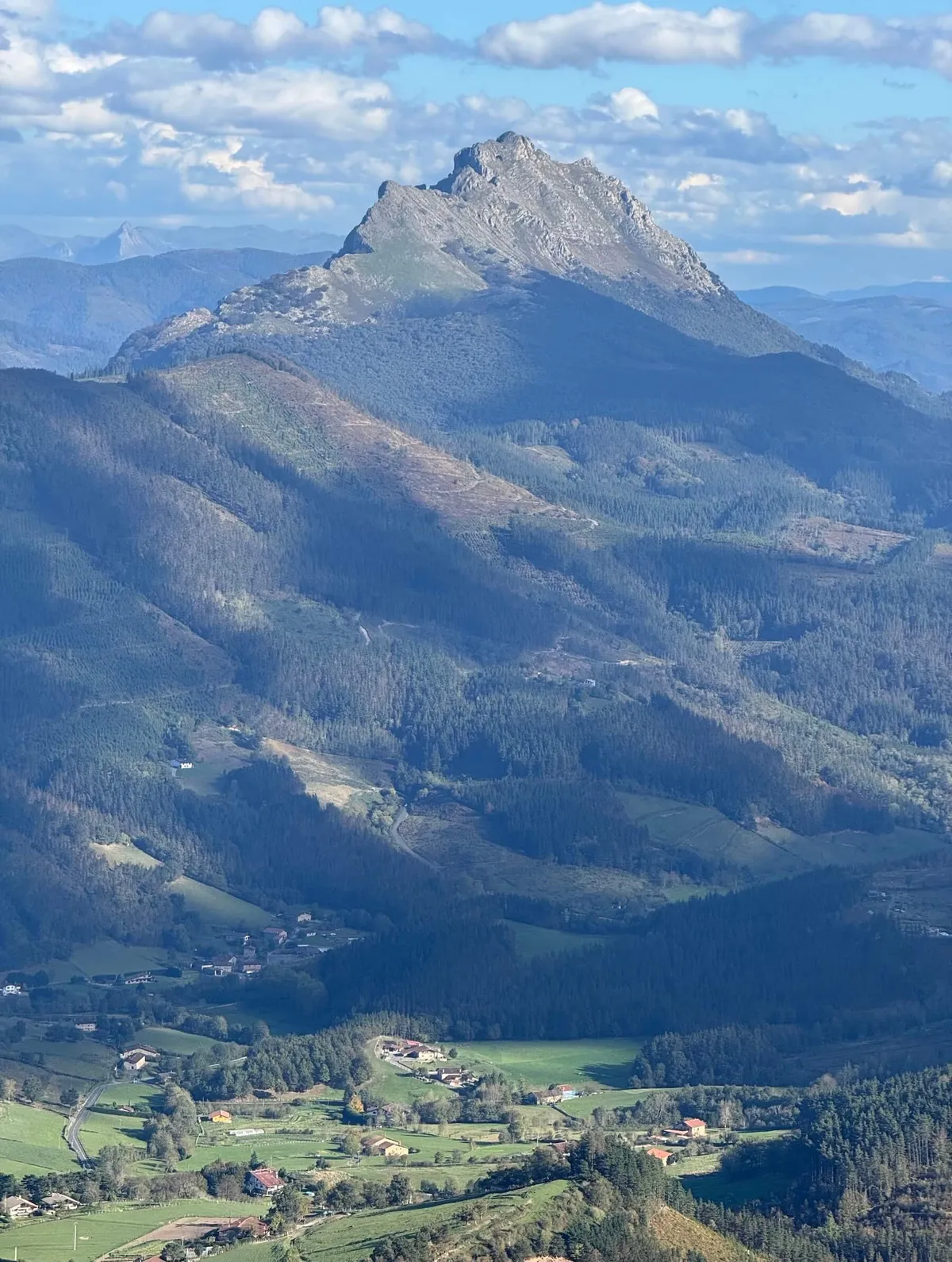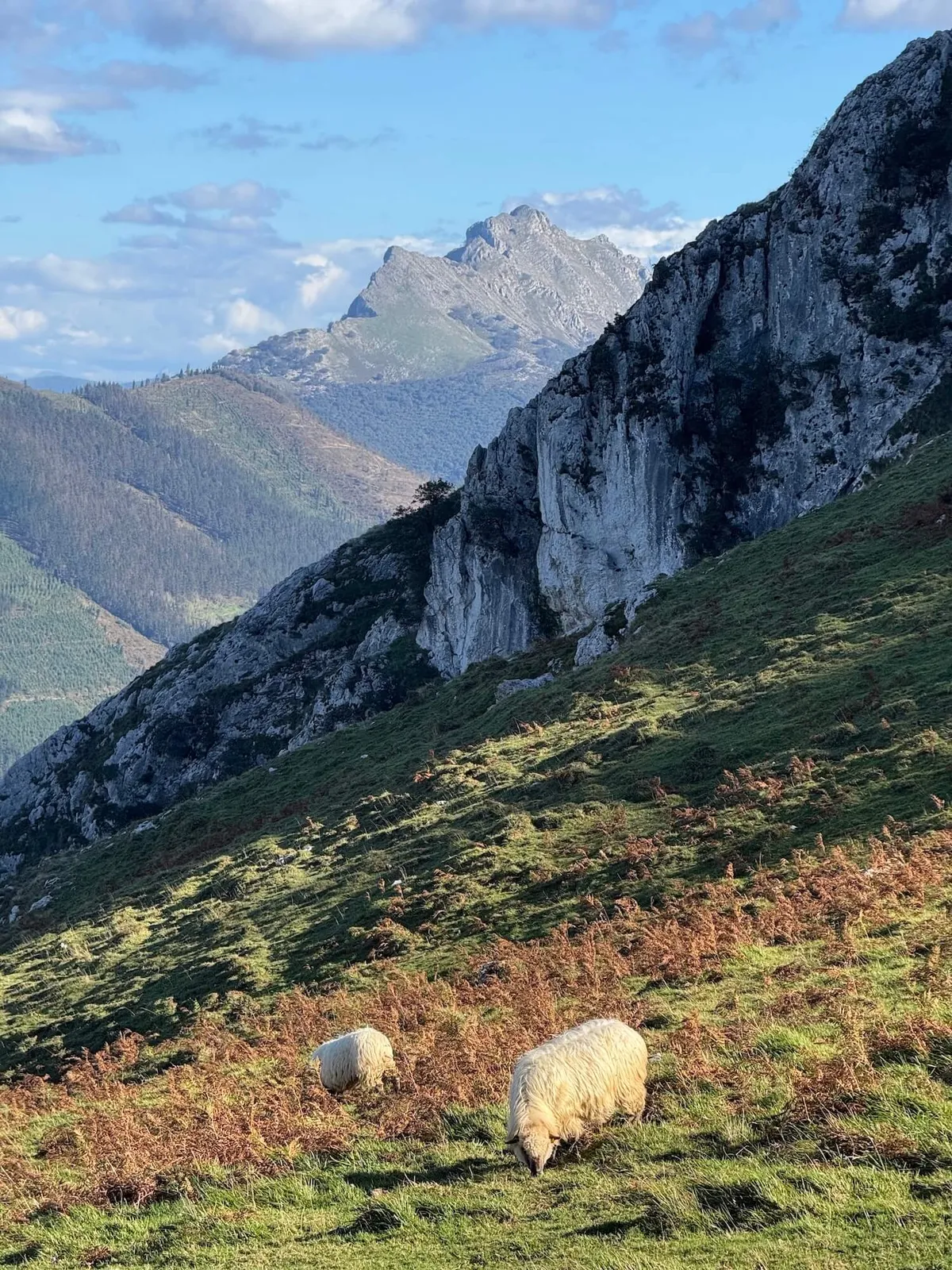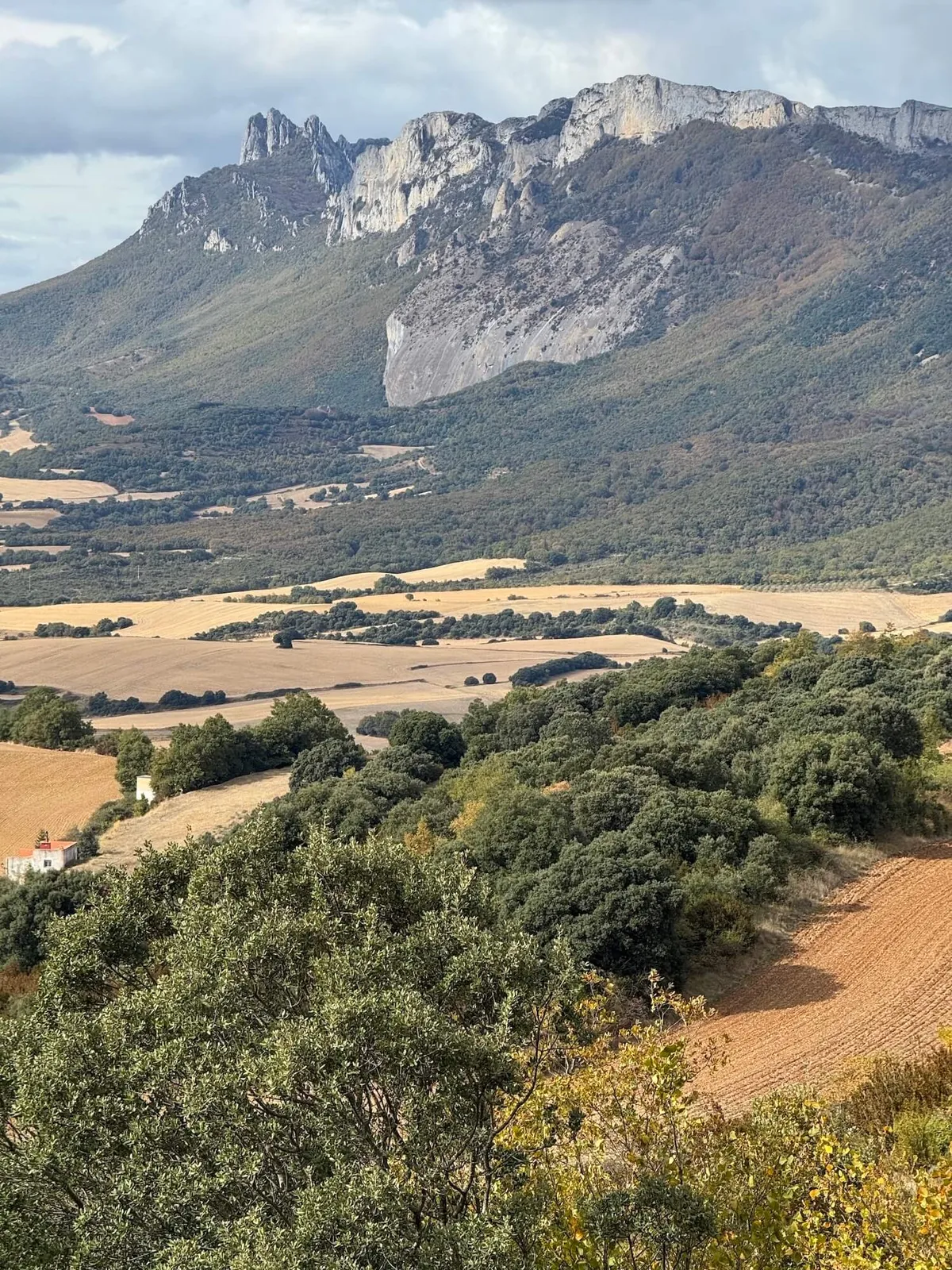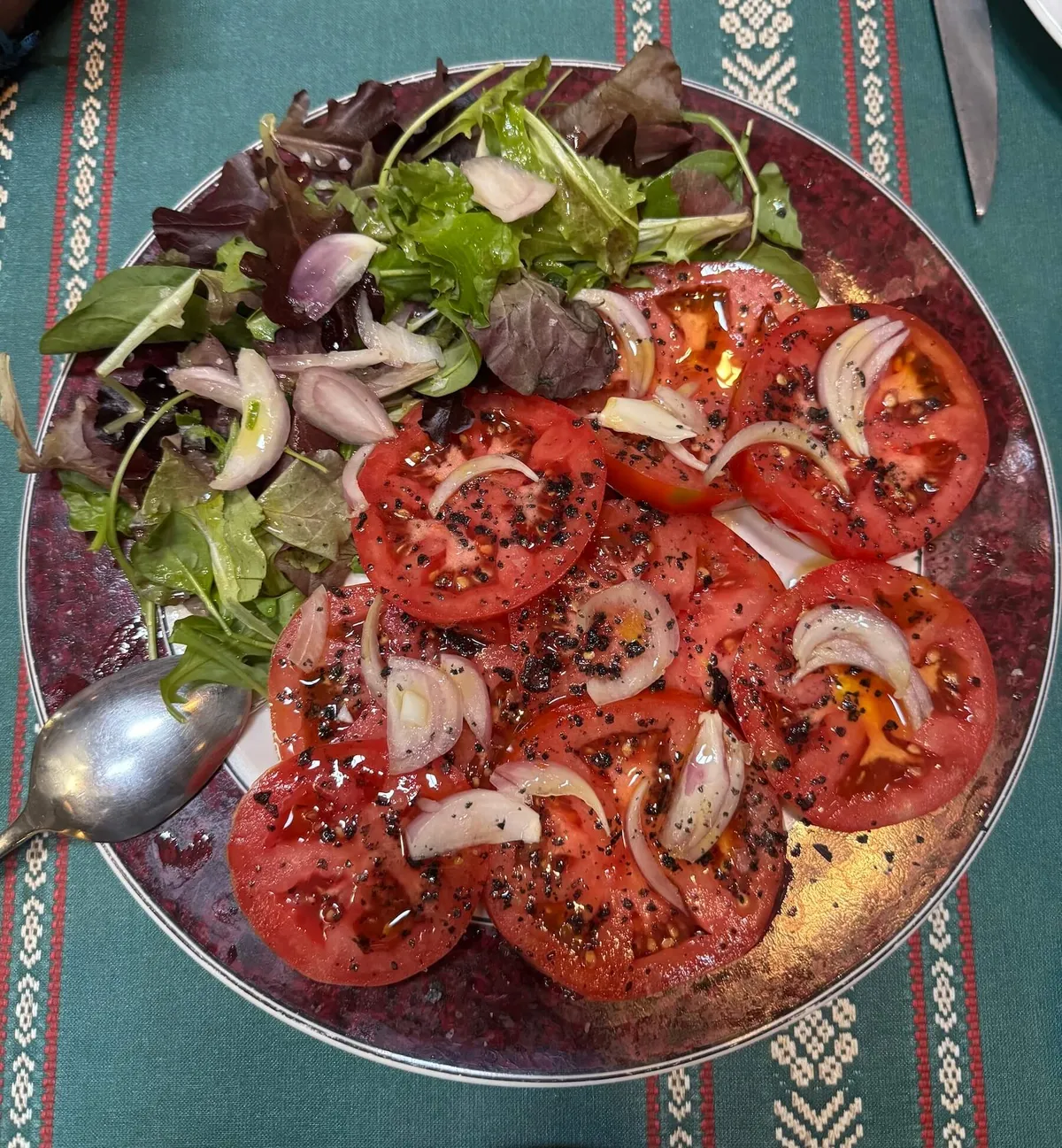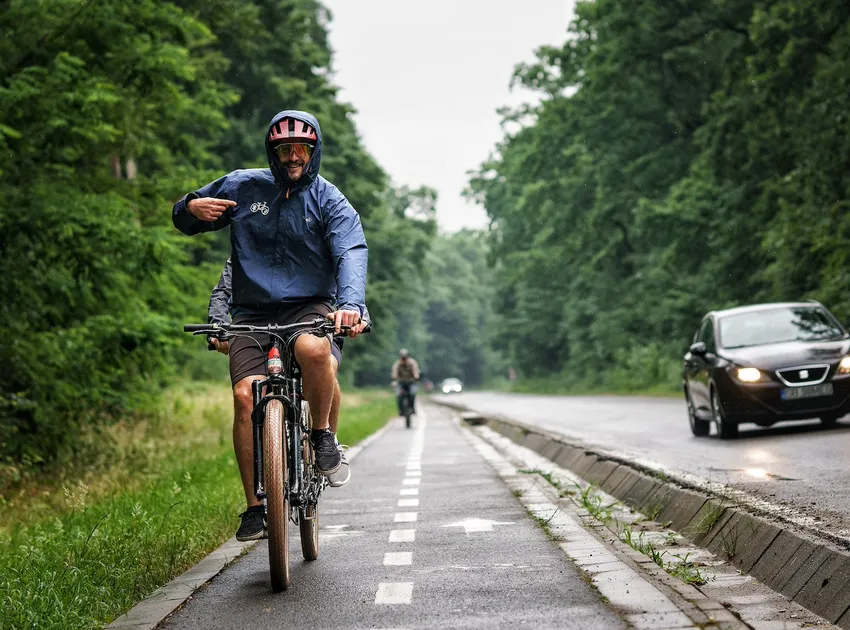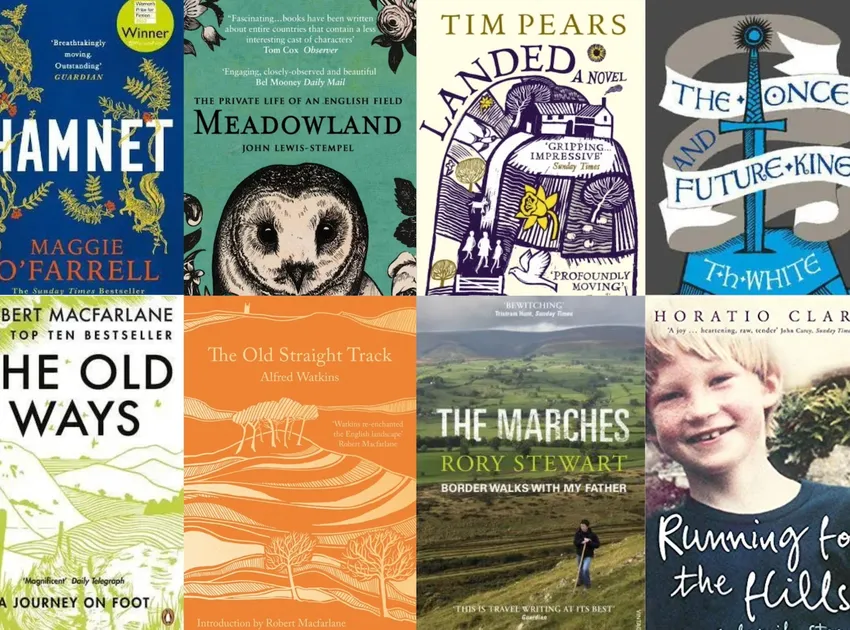The Basque's Silent Language
This autumn, Matthew from our HQ team visited Spanish Basque Country for the first time in a few years. Having been instrumental in setting up the trip in 2022, he was excited to revisit the route.
On his journey, Matthew fully immersed himself in the Basque's passionate food culture, sampling Pintxos, Txakoli and fine wines. He learned how food is not simply food, but a way of showing love and care among the Basque people.
Pintxos and Gastronomy
I began my recent visit to the Basque Country as one should: eagerly waiting for lunch in a lively Pintxos bar. I was meeting Noemi, a local guide and friend of The Slow Cyclist at her favourite spot, Antonio Taberna in San Sebastian. She assured me that Antonio served the best tortilla in the world, made fresh every morning and often sold out by the afternoon. So we waited patiently with a coffee for the tortilla's 11am grand arrival. I can confirm that it was worth the wait, being soft on the inside, filled with rich caramelised onions and crispy on the outside.
It's moments like these that I remember why the Basque Country is such a special place. This isn't just about a tortilla, but a moment of connection. Pintxos - the Basque answer to tapas - offer an opportunity for the region's chefs to show off their creativity, but also to concoct something that will bring people together.
As Noemi says, 'sharing Pintxos is a way to say things that we dare not say in words. It's a way for us to say "I love you" or "I need you" or "I appreciate you". It's the silent language of the Basque.'

The origins of the Basque's love of Pintxos is surprisingly recent. Noemi explained that in Franco's era, people from the Basque Country would cross into France to watch films. One particularly popular option was Gilda starring Rita Hayworth - a film so adored that Bar Casa Vallés in San Sebastián invented the Gilda Pintxos. The bold bite featured a combination of olives, pickled pepper and salted anchovy to represent Gilda's fiery and provocative nature.
Axpe and Assador Etxebarri
After promenading around San Sebastián's Concha Bay, a distinctive shell shape made up of La Concha and Ondarreta beaches backed by imposing villas, I headed to another culinary hotspot: Axpe. Only an hour away from the city, Axpe is a tiny hamlet nestled in a valley overlooked by the limestone peak of Monte Anboto. But Axpe is best known for its Michelin Star restaurant Asador Etxebarri.
In one of the village's restored stone houses you'll find one of the world's best restaurants. Founder and chef Victor Arguinzoniz is famous for being able to grill almost anything, creating complex flavours from simple ingredients. To dine here is a culinary experience.

Urkiola Natural Park
Sadly I wasn't in Axpe to eat. Instead, I used the hamlet as a base to explore Urkiola Natural Park, a unique ecosystem surrounded by towering peaks and undoubtedly a highlight of our journey through the Basque. For once I chose not to explore on two wheels, instead opting for one of the area's many hiking trails with only goats and sheep for company. Despite being mid-October and chilly in the UK, the weather was glorious. I climbed to the peak of Astxiki which, at 785 metres high, offers panoramic views of the park, across deep gorges and towards the Betsaide peak where the three Basque regions of Araba, Bizkaia and Gipuzkoa meet.
After my hike, I returned to Axpe for a refreshing glass of the slightly effervescent Txakoli wine with Sole, the wonderful owner of Mendi Goikoa hotel and restaurant where we stay and dine on our journey.
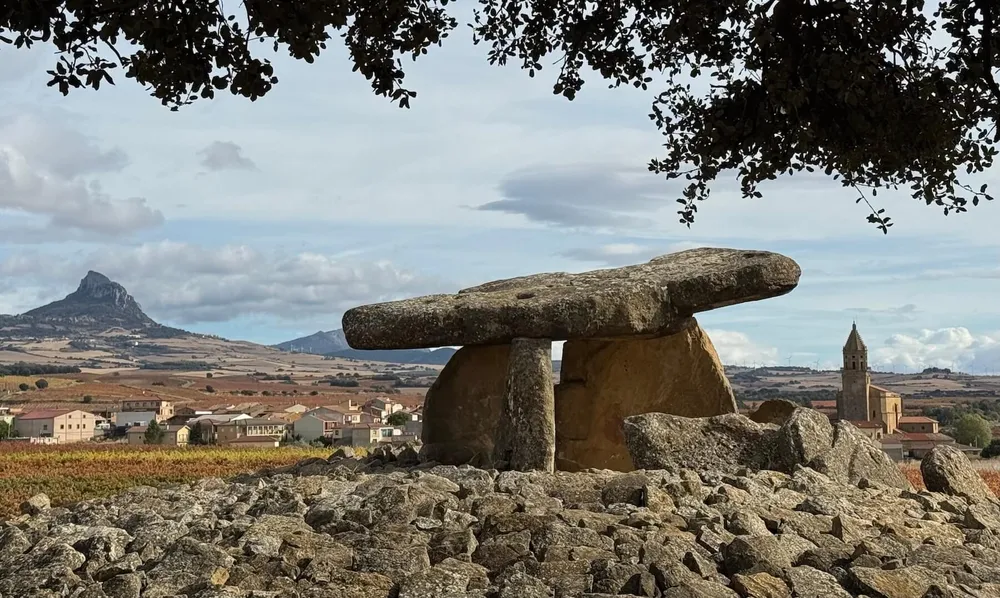
Following the Wine and Fish Route
The next morning, I met our lead guide Felipe in the Rioja village of Abalos to cycle some of our route, dropping in along the way to thank our local parters who have offered such wonderful hospitality this year. Our route roughly follows the ancient Ruta del Vino y el Pescado (The Wine and Fish Route), a historical trail once used by grape growers to transport their wine to the coast where they would buy dried fish to sell back to Rioja.
The journey takes us through contrasting landscapes. As Felipe puts it, 'This is like a journey through different countries, from the distinctly Spanish landscapes of Rioja to birch forests you may associate with Scandinavia or Ireland, then exploring Swiss-style mountains before ending at the sea, cycling along the kind of wild cliffs you would find in Scotland.'
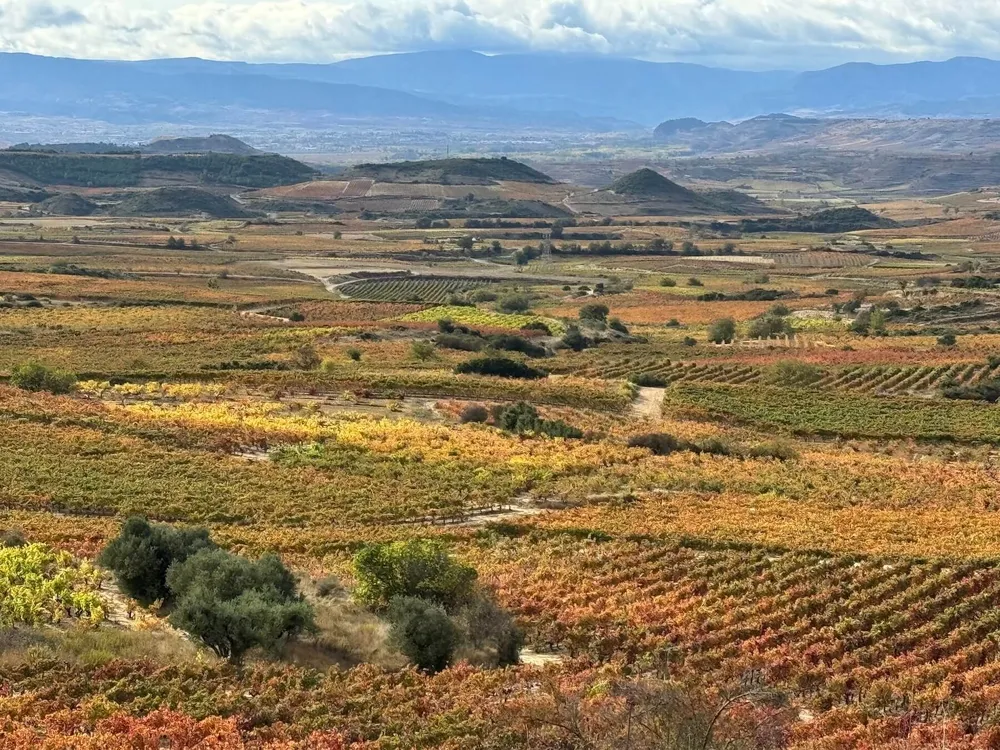
We began by cycling along quiet backroads and tracks along the northern perimeter of the Rioja valley, past small wineries and semi-deserted villages with churches made of golden stone. October is a spectacular time to visit, with a sea of red and orange vineyards stretching out as far as the eye can see. One such vineyard is at Bodegas Puelles, a wonderful family winery that we visit on day one of the journey; a wine tasting here is always a great way to kick off a trip!
Climbing out of the Rioja valley always feels symbolic; we arrive in Puerto de La Aldea Viejo, a gateway to another landscape, where rolling vineyards blend into dense birch forests. The next day, we cycle to 'Basque Switzerland', pausing for coffee at a Basque 'taberna' in Olaeta. It was built more than 300 years ago by the village residents and has continually operated as a bar ever since: yet another example of food and drink being central to the Basque community.
Food as Language
For our next gastro feast we head to Antsotegi, where we meet restaurant and hotel owner Gontzal whose passion for the region is infectious. His family are simply iconic in the region. His father Emilio was the first Basque person to conquer Everest before settling in Antsotegi and converting an abandoned medieval iron works into a much-loved hotel.
We tucked into fresh giant tomatoes, white asparagus and steak, all washed down with a ravishing Rioja. As my trip comes to an end, once again I find myself hearing how food is language in the Basque. 'Food holds immense significance here,' says Felipe, 'not just for eating but especially for cooking. It's not uncommon to see men in their 70s sharing a glass of wine in a village bar sharing recipes and cooking techniques.'
'Food is the most profound way to show others we care about them,' he says. And as I tuck into a rich, creamy Basque cheesecake, I couldn't agree more.
If you'd like to join us for a culinary journey of the Basque Country join us to discover the region by electric bike. Contact us to find out more.

